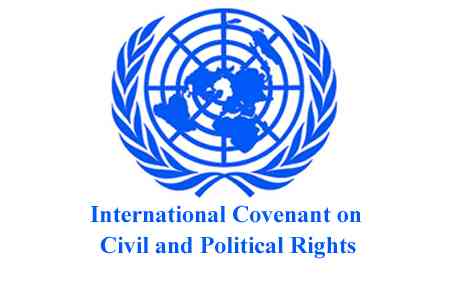
HARARE, March 10, (NewsDay Live) - Zimbabwe says it has made significant progress in strengthening civil and political rights, with key legislative reforms aligning national laws with the Constitution.
Justice, Legal and Parliamentary Affairs deputy minister Nobert Mazungunye made the claims during the 143rd session of the United Nations Human Rights Committee in Geneva, Switzerland, where Zimbabwe presented its progress report on the International Covenant on Civil and Political Rights (ICCPR).
Mazungunye outlined Zimbabwe’s commitment to fostering a more inclusive and democratic society.
He noted that legislative and administrative measures have played a key role in advancing human rights and governance.
“We are proud of the advancements we have achieved through significant legislative reforms, administrative measures, and a strong commitment to democratic processes, which are fundamental pillars of our national development,” he said.
A key milestone in Zimbabwe’s human rights record was the abolition of the death penalty.
The enactment of the Death Penalty Abolition Act on December 31, 2024, marked a historic shift in the country’s legal system.
Mazungunye emphasised said the move aligned Zimbabwe with international human rights standards, particularly Article 3 of the Universal Declaration of Human Rights and Article 6 of the ICCPR, which underscore the right to life.
- New perspectives: The age of impunity in Zimbabwe
- New perspectives: The age of impunity in Zimbabwe
- ‘State agents perpetrating political violence’
- Election season, women’s experiences
Keep Reading
“The Act represents a transformative shift in our legal landscape, focusing on rehabilitation, proportionality, and justice rather than punitive measures,” he said.
“Beyond the abolition of the death penalty, Zimbabwe has implemented key legal reforms to strengthen democracy, transparency, and human rights protection.
“The Electoral Amendment Act aims to enhance electoral integrity by ensuring free, fair, and credible elections, while the Freedom of Information Act promotes media freedom and greater access to information. Additionally, the Prisons and Correctional Services Act focuses on improving prison conditions and prioritizing rehabilitation over punitive measures.
“These legislative changes reflect the country’s commitment to fostering a more inclusive and rights-based governance system.”
These reforms are designed to foster a more transparent, participatory, and inclusive political environment, reinforcing Zimbabwe’s commitment to democracy.
Despite these advancements, Zimbabwe continues to face economic challenges linked to sanctions imposed by some Western countries.
Mazungunye said these restrictions hindered the full realisation of civil and political rights, affecting essential sectors like education, healthcare, and water and sanitation.
“The sanctions have severely affected the economy, limiting the government’s ability to implement essential programs that promote and protect human rights,” he said.










